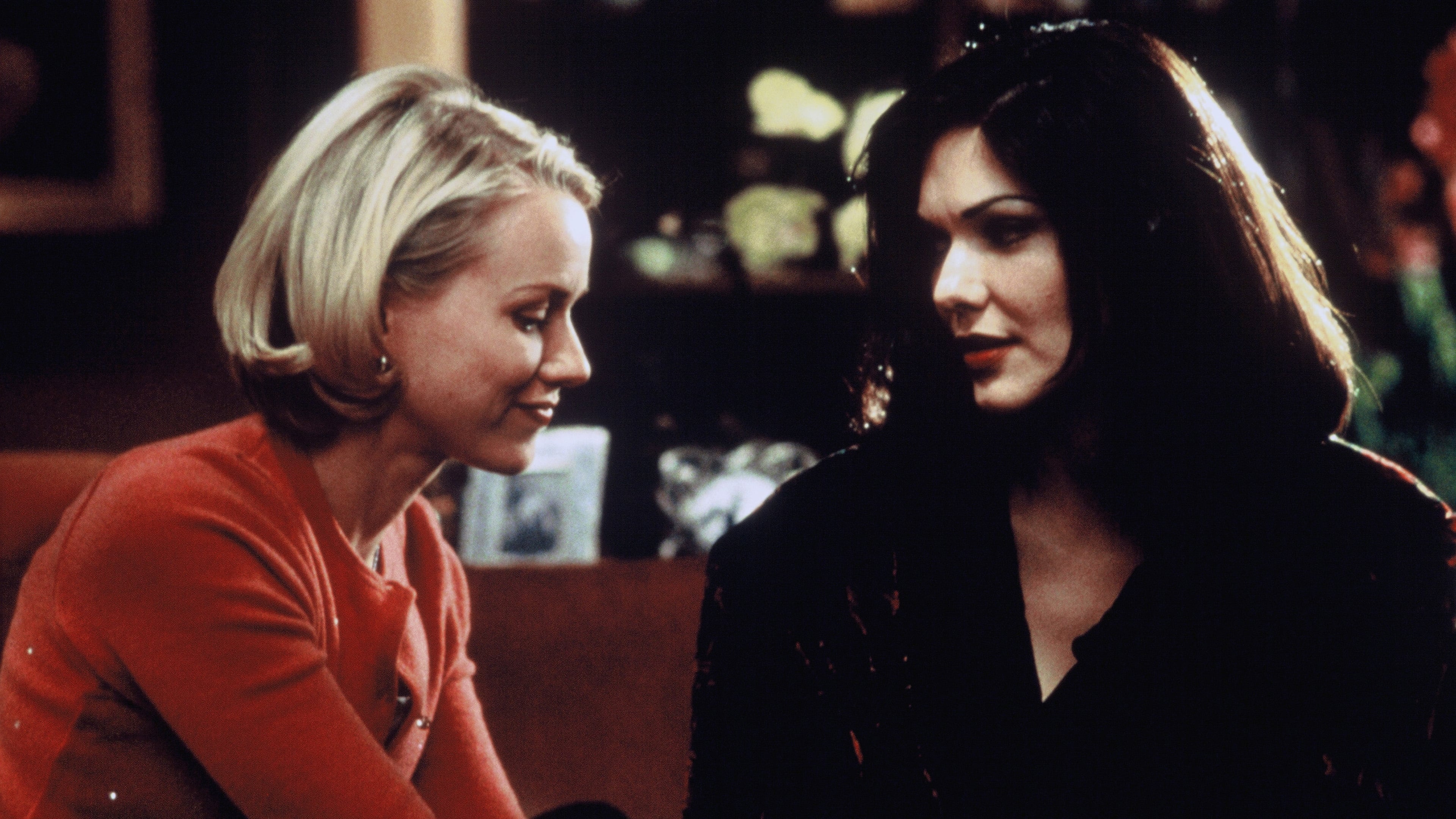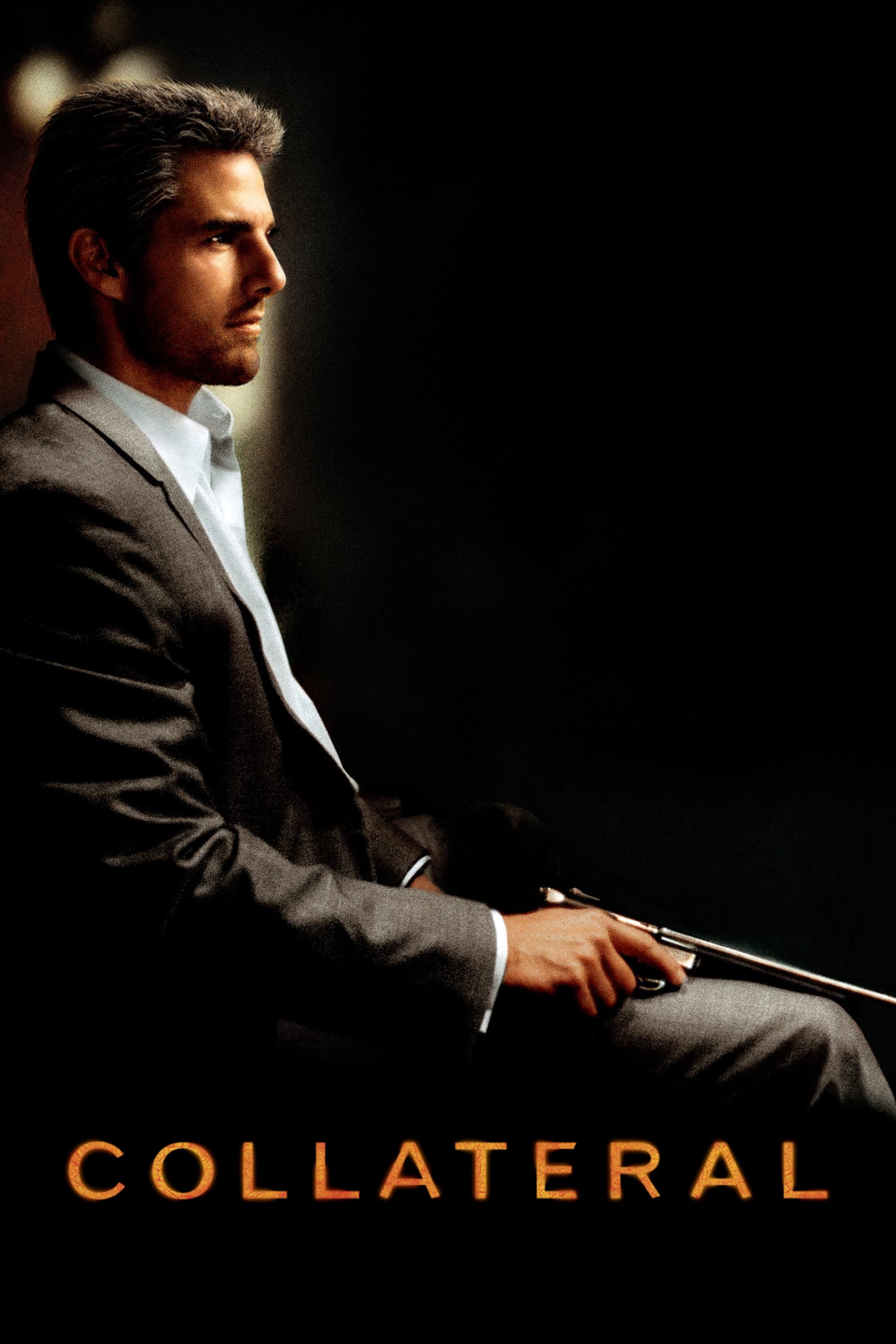"Hey, pretty girl. Time to wake up."
But I don't want to. I've seen Mulholland Drive quite a few times over the years, and I never fail to take something new away or to be continuously riveted by it each time. The final fifteen minutes of this film send shivers down my spine and give me goosebumps all over every single time. There are so many moving parts and hidden layers to this film, some only uncovered in a single line of dialogue that may seem trivial and inconsequential. However, as with all great filmmakers, every line, every detail, and every creative decision are crucial to understanding the meaning of this nightmare.
David Lynch's opus opens up with a fever dream dance sequence, which we can later deduce is the jitterbug contest that made Diane Selwyn (Naomi Watts) interested in becoming an actress in Hollywood. Lynch's version of Hollywood retains a dreamy and surrealist atmosphere that we would later see in Inland Empire, which I would consider to be a nice double feature with this. However, the difference is that this is a puzzle where the pieces fit together. Following this, the next notable thing that occurs is a car accident that occurs just before a mysterious woman (Laura Harring) is about to be assassinated by two permanently unnamed men in suits. Alone, she wanders through the hazy night and into the city, but she doesn't remember who she is or why she is in Los Angeles. What follows is nearly two and a half hours of some of the most poignant, devastating and fascinating filmmaking ever captured. I can honestly say it's my favorite film of all time.
Freud's perspective on psychology is arguably misogynistic and inarguably outdated, as hardly any psychologists use the psychoanalytic approach anymore, but one thing that can't be denied is that his ideas on psychology have produced some incredible pieces of art and storytelling. Mulholland Drive stands out as being among the very best. The first section of the film, which takes up the significant majority of the runtime, plays very much like a dream. The overwhelming bright colors, the strange and almost stilted line delivery from Betty (the dream version of Diane) and the doughy eyed examination of Los Angeles all feed into this incredibly nuanced fantasy that Diane has. With that in mind, to understand this film, we need to work backwards.
The second section of this film, which I would argue begins during Rita and Betty's visit to the Club Silencio theater, where Betty begins to tremble during the performer's explanation that everything the audience is hearing and seeing is an illusion. This is the moment in which the fantasy world begins to implode as it collides with reality. Diane's fantasy has been carefully constructed by her unconscious desires, and they craft a narrative that satisfies all of her insecurities and accomplishes all of the dreams that never worked out. The first and most important part of what the fantasy addresses is her intense desire to have Camilla sexually and also to become her. She is named Rita in the fantasy world. In reality, Camilla was the one who attracted the eye of the famous movie director and not Diane, and she left her to be with him, which causes Diane such immense and overwhelming jealousy that she is unable to cope with it. Not only does Camilla wind up representing her shortcomings from a romantic perspective but also from a career perspective too. I personally find it impossible to not feel very sorry for Diane, as what she is experiencing is a whirlwind of emotions that permeates modern life more than it has in any other point in human history.
To address the romantic aspect of her life in the fantasy, Camilla loses her memory, which gives Diane the opportunity to rescue her and make her fall in love with her again. It doesn't simply stop at making Rita fall in love with her, but she goes out of her way to humiliate the director Adam Kesher (Justin Theroux) in every way imaginable. His creative role as a filmmaker is stolen from him by gangsters, his wife is cheating on him and throws him out of his own house. Oh, and he loses all of his money. On first viewing, it's comical and seems to be totally uncalled for, as you can't help but feel bad for this guy being humiliated and belittled in every aspect of his life for seemingly no reason. On repeat viewings, it becomes more clear why Diane's mind is going so far out of her way to annihilate him. To top it all off, he is starstruck by her when she enters the room during the auditions for the lead role in his next movie, which is being meddled with by mobsters. However, she has to leave because she promised to help Rita investigate the mystery of her own forgotten identity, which serves as Diane's unconscious providing her with a reason for why her dreams of becoming an actress never worked out the way she wanted. At this point in the fantasy, Rita and Betty begin to merge into one. They investigate the apartment of a woman named Diane Selwyn, who died sometime ago. It is later revealed by the end of the movie that this is in fact Betty/Diane, as she is lying in the same bed in the same position. As the two of them escape, the camera blurs the two actresses together, signifying that her unconscious has succeeded in molding Rita into exactly what Betty/Diane wants her to be.
Romance and the agonizing jealousy stemming from it aren't the only things that Diane's fantasy addresses, as there are many layers and nuances to it that carefully fix what she perceives as wrong her life. Circling back to the end of the film, I think a clue that we need to take into account is that the waitress in the cafe, who is played by the same woman, has a name tag of Betty in the real world, and a name tag of Diane in the fantasy world. This can be interpreted in many ways, but the way I have interpreted this over the years is that Diane, in the real world, is in fact working as a waitress while trying to get her big break as an actress in a city filled with an endless supply of people just like her: individuals trying to stand out in a system that forces you to be stagnant. Unfortunately for Diane, the farthest she was able to reach was getting smaller parts in some of Camilla's films, with the most notable seeming to be the one Camilla and Adam made. The scene where Adam instructs the actor on how to kiss Camilla the way he wants by demonstrating it on her himself enrages Diane, as we see by her piercing facial expression. It's a masterful performance by Watts, who transcends any adjective I could use to describe what she accomplishes here.
With her job as a waitress in mind, Diane's fantasy constructs a narrative that whoever gets these roles only got them because they were rigged; that the only reason an actor got the leading role is because mysterious and inexplicable forces pulled invisible strings to give them that opportunity. An unnamed and unexplained group of men who appear to be mobsters infiltrate the movie that Adam is making, and when it becomes clear that he doesn't want to cast the girl they want (who is named Camilla Rhodes, and looks like the woman who kissed the real Camilla in front of Diane at the engagement party near the end of the film), they sabotage Adam in every way imaginable in the ways touched on earlier.
Betty shows herself to be a fantastic actress in the scene where she auditions for her first film. She makes a comment to Rita that the scene is lame, but she nonetheless pours her heart and soul into the audition. She decides to play the scene in a much more sexual and provocative manner than she rehearsed, ultimately allowing herself to be fondled by the actor (and leaning into it) in order to give herself that much more of an edge to get the role. I think she internalized this detail when she sees Camilla and Adam kiss during the scene discussed earlier, and takes it as if Camilla only got the role she wanted with Adam because she allowed her sexuality to be taken advantage of by powerful men in Hollywood. I'm not accusing Adam of being a sexual predator, as this is all speculation, but this is simply my interpretation of how Diane internalizes what she sees in the real world that shapes her fantasy world.
Unable to cope with her jealousy and longing to not only have Camilla, but also to BE Camilla, she uses what is left of the money that her aunt left her to hire a hitman to kill her. He tells Diane in the same Winkie's restaurant from near the beginning of the film that she will find a blue key in the spot he told her it would be at when the job is finished, which is eerily similar to the blue key found in the fantasy. Diane is racked with what I can only imagine is an overwhelming and tremendous amount of guilt, combined with the stress of being watched by the police. In one of the funniest scenes in the film, Diane's fantasy comforts her by presenting the hitman as a clumsy moron who failed to kill Camilla, which is evidenced in the following scene when he asks a woman if she has seen a brunette who speaks Spanish on the streets. The old people let out of the box by the creature behind the diner (which I believe is meant to be a humanoid manifestation of the lost dreams found throughout the streets of Hollywood; a recurring motif in all of David Lynch's films) are actually the same old people we see dropping Betty off from the airport when she first moves to the big city towards the beginning of the film when we are first introduced to Betty as a character. The old smiling woman is her aunt; the same aunt who left her the money to go to Hollywood to pursue her acting dreams, which adds a cruel and ironic layer to how her guilt manifests itself, and it makes for one of the scariest endings to a movie you'll ever see. Diane commits suicide as she runs from her hallucinations by shooting herself in the head. In the fantasy world, Diane is dead via what looks like pills, which is Diane's way of fantasizing about preserving her beauty in death.
Ultimately, what Diane's unconscious is doing for her is comforting her. If she didn't become a movie star, it was because it was rigged against her from the start. If she can't have Camilla, it's because she was stolen from her by someone else. Mulholland Drive is a film about Hollywood being a land of lost dreams, filled with unfulfilled aspirations and jealousy on every corner of every street. Such can be said about basically any city in the 21st century, though. I live in San Jose, a mere six or seven hours north of Los Angeles, and it's almost identical in that sense. This happens in every city you've ever been in. You pass by people with dreams that will never be fulfilled. It's ironic; in modern urban life you are surrounded by people at all times, and yet, there is no lonelier place.
At some point or another, we are all Diane Selwyn.


No comments:
Post a Comment